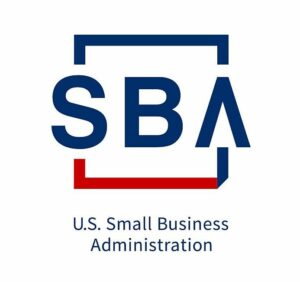 The SEC has issued a proposal to expand the definition of “accredited investor” as used for the Regulation D safe harbor for private offerings. This press release/fact sheet summarizes the changes. There are a number of technical updates to reflect developments in how business is now conducted, e.g., LLCs with sufficient assets would qualify in the same manner as corporations now do. However, the change that would likely have the most impact, at least in my practice, is the inclusion as accredited investors of natural persons with appropriate professional certification, such as holders of a Series 7 securities license, even if they don’t qualify under the existing standards for natural persons for income or net worth. I’m not aware of any significant opposition to this concept and assume it will be enacted by the SEC after public comment.
The SEC has issued a proposal to expand the definition of “accredited investor” as used for the Regulation D safe harbor for private offerings. This press release/fact sheet summarizes the changes. There are a number of technical updates to reflect developments in how business is now conducted, e.g., LLCs with sufficient assets would qualify in the same manner as corporations now do. However, the change that would likely have the most impact, at least in my practice, is the inclusion as accredited investors of natural persons with appropriate professional certification, such as holders of a Series 7 securities license, even if they don’t qualify under the existing standards for natural persons for income or net worth. I’m not aware of any significant opposition to this concept and assume it will be enacted by the SEC after public comment.
However, any time the topic of the accredited investor definition is raised serves as a trigger for me to raise the issue of investment limits in private offerings. Crowdfunding offerings under Regulation CF, enacted in recent years and still used far less than Regulation D, impose investment limits on investors that are based on a percentage of the investor’s income or net worth. Accordingly, the structure precludes a total financial wipeout of the individual investor as a result of a failed investment. …
The SEC’s Proposed Expansion of Accredited InvestorsRead More »
 The SEC’s recent final rule release regarding exempt offerings covered various topics, including the subject of my previous post, on the expanded offering limits for Regulation CF crowdfunding and Regulation A offerings. In the release, the SEC also provided some welcome relief in the accredited investor verification process for Rule 506(c) offerings.
The SEC’s recent final rule release regarding exempt offerings covered various topics, including the subject of my previous post, on the expanded offering limits for Regulation CF crowdfunding and Regulation A offerings. In the release, the SEC also provided some welcome relief in the accredited investor verification process for Rule 506(c) offerings. The SEC issued a
The SEC issued a 
 The Small Business Administration (SBA) has just launched the Paycheck Protection Program (PPP), arranging for forgivable loans to small businesses affected by COVID-19. There are, however, widespread implementation issues, with several banks that will administer the loans not yet being ready to process loan applications, as of April 6, 2020. For general guidance on the program, I can provide you with this
The Small Business Administration (SBA) has just launched the Paycheck Protection Program (PPP), arranging for forgivable loans to small businesses affected by COVID-19. There are, however, widespread implementation issues, with several banks that will administer the loans not yet being ready to process loan applications, as of April 6, 2020. For general guidance on the program, I can provide you with this  The SEC has issued a
The SEC has issued a  Every deal lawyer has had the experience. The deal negotiations have gone on longer than anyone expected. Frustration is setting in. At that point, one of the individuals involved, more likely to be one of the principals instead of an attorney, demands an all-hands, in-person meeting to get the deal done, and “we’re not leaving until we have a deal.” This impulse, while understandable, is often misguided and can lead to additional frustration.
Every deal lawyer has had the experience. The deal negotiations have gone on longer than anyone expected. Frustration is setting in. At that point, one of the individuals involved, more likely to be one of the principals instead of an attorney, demands an all-hands, in-person meeting to get the deal done, and “we’re not leaving until we have a deal.” This impulse, while understandable, is often misguided and can lead to additional frustration. Writing in Above the Law, Jordan Rothman argues from personal experience that
Writing in Above the Law, Jordan Rothman argues from personal experience that  In some ways, my law firm, Andrew Abramowitz, PLLC, is at the forefront of recent changes in the delivery of legal services. For example, the firm operates virtually, with the staff attorneys toiling away at home (or wherever – they could be doing it while hang-gliding as long as they do the job well and promptly, as far as I’m concerned). The ability to get the work done without housing everyone in an expensive Manhattan leased space gives the firm flexibility to offer more competitive rates than traditional firms.
In some ways, my law firm, Andrew Abramowitz, PLLC, is at the forefront of recent changes in the delivery of legal services. For example, the firm operates virtually, with the staff attorneys toiling away at home (or wherever – they could be doing it while hang-gliding as long as they do the job well and promptly, as far as I’m concerned). The ability to get the work done without housing everyone in an expensive Manhattan leased space gives the firm flexibility to offer more competitive rates than traditional firms. When I am having initial discussions with potential startup clients, they often say they’re looking for a firm that understands the particular challenges of running a startup. Perhaps this can be a reference to the substantive transactional matters that startups deal with – like negotiating an agreement among founders or raising capital using methods particular to early-stage companies – that attorneys who’ve been trained by representing Fortune 500 companies may not understand. But often the subtext of the question is that startups are frequently short of cash and may not be in a position to pay legal bills on a regular basis. The challenge for the attorney is to secure these sorts of clients and still manage to make a living after doing so.
When I am having initial discussions with potential startup clients, they often say they’re looking for a firm that understands the particular challenges of running a startup. Perhaps this can be a reference to the substantive transactional matters that startups deal with – like negotiating an agreement among founders or raising capital using methods particular to early-stage companies – that attorneys who’ve been trained by representing Fortune 500 companies may not understand. But often the subtext of the question is that startups are frequently short of cash and may not be in a position to pay legal bills on a regular basis. The challenge for the attorney is to secure these sorts of clients and still manage to make a living after doing so. The SEC recently issued a long “
The SEC recently issued a long “